Removal Procedure
Tools Required
J 37088-A Tool Set, Fuel Line Quick-Connect Separator
Caution: Wear safety glasses when using compressed air, as flying dirt particles may cause eye injury.
Caution: Relieve the fuel system pressure before servicing fuel system components in order to reduce the risk of fire and personal injury.
After relieving the system pressure, a small amount of fuel may be released when servicing the fuel lines or connections. In order to reduce the chance of personal injury, cover the regulator and the fuel line fittings with a shop towel before disconnecting. This will catch any fuel that may leak out. Place the towel in an approved container when the disconnection is complete.Caution: Place a dry chemical (Class B) fire extinguisher nearby before performing any on-vehicle service procedures. Failure to follow these precautions may result in personal injury.
Notice: Cap the fittings and plug the holes when servicing the fuel system in order to prevent dirt and other contaminants from entering the open pipes and passages.
Important: Always maintain cleanliness when servicing fuel system components.
- Relieve the fuel system pressure. Refer to Fuel Pressure Relief .
- Grasp both sides of the fitting. Twist the female connector ¼ turn in each direction to loosen any dirt within the fitting.
- Blow dirt out of the fitting using compressed air.
- Choose the correct tool from J 37088-A Tool Set for the size of the fitting. Insert the tool into the female connector, then push inward to release the locking tabs.
- Pull the connection apart.
- Using a clean shop towel, wipe off the male pipe end.
- Inspect both ends of the fitting for dirt and burrs. Clean or replace the components as required.
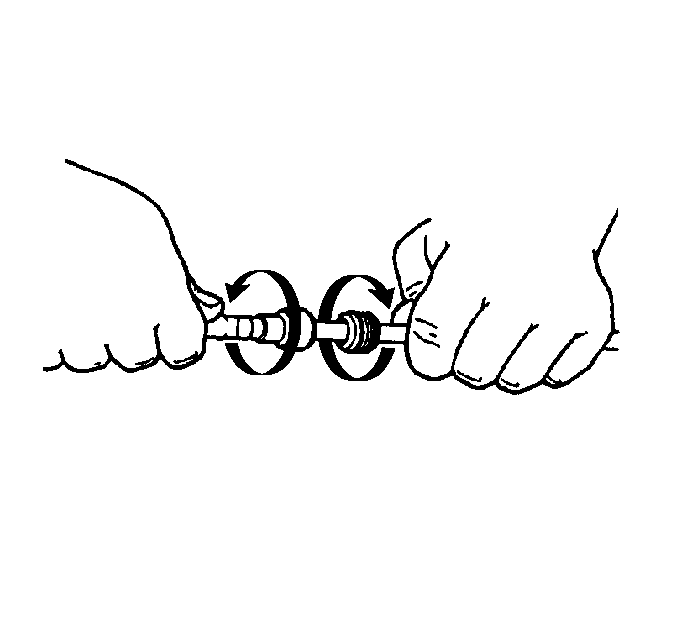
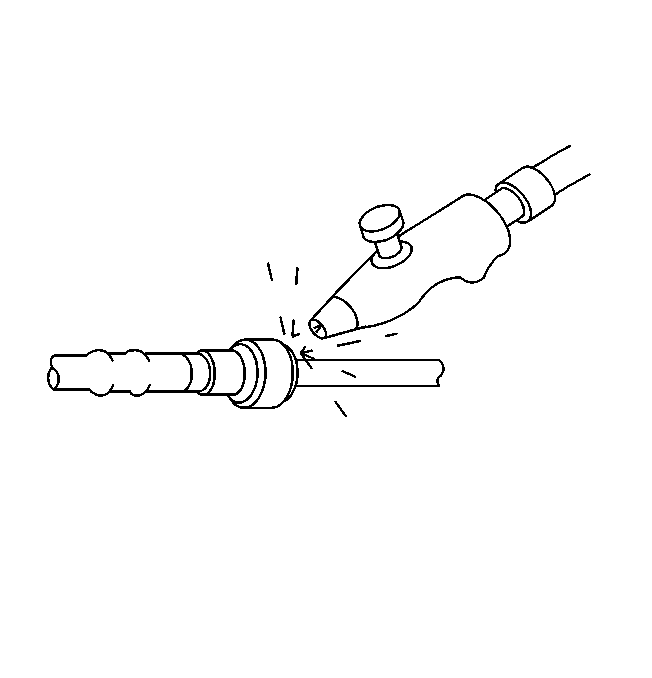
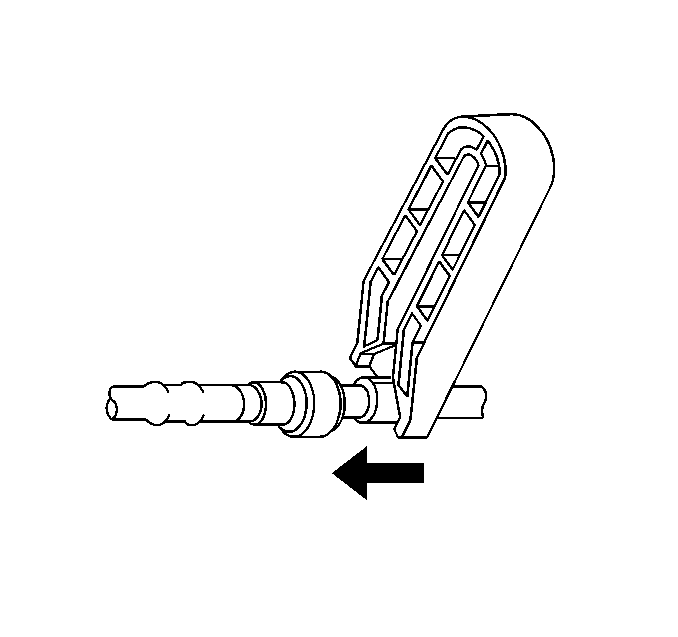
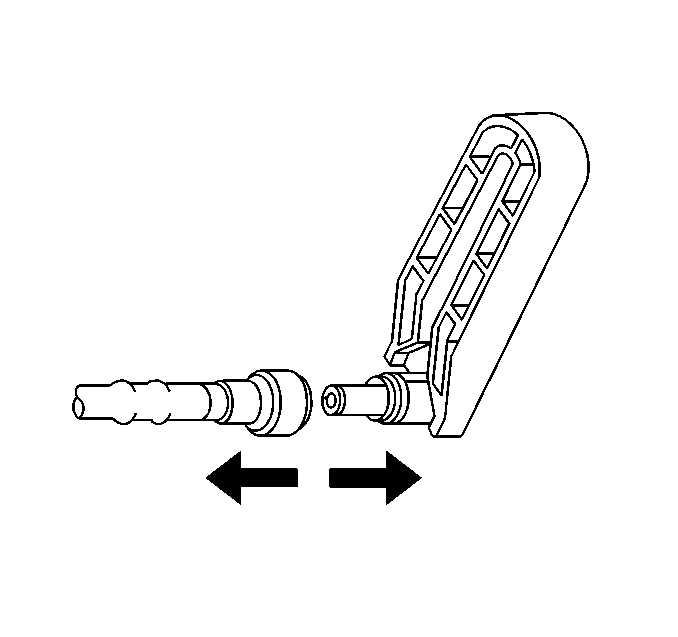
Notice: If necessary, remove rust or burrs from the fuel pipes with an emery cloth. Use a radial motion with the fuel pipe end in order to prevent damage to the O-ring sealing surface. Use a clean shop towel in order to wipe off the male tube ends. Inspect all the connections for dirt and burrs. Clean or replace the components and assemblies as required.
Installation Procedure
- Apply a few drops of clean engine oil to the male pipe end.
- Push both sides of the fitting together to cause the retaining tabs to snap into place.
- Once installed, pull on both sides of the fitting to make sure the connection is secure.
- Reconnect the negative battery cable. Refer to Battery Negative Cable Disconnection and Connection in engine electrical.
- Inspect for leaks.
- Reinstall fuel injection sight shield. Refer to Fuel Injector Sight Shield Replacement in Engine Mechanical.
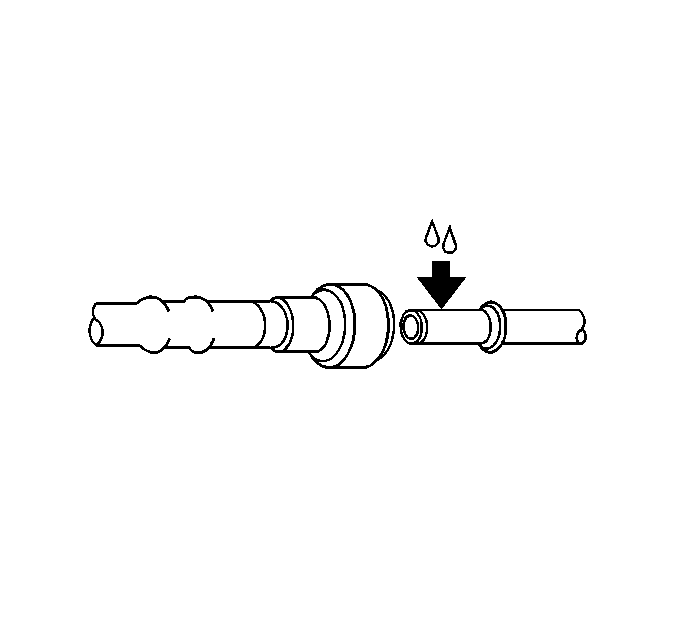
Caution: In order to reduce the risk of fire and personal injury, before connecting fuel pipe fittings, always apply a few drops of clean engine oil to the male pipe ends.
This will ensure proper reconnection and prevent a possible fuel leak. During normal operation, the O-rings located in the female connector will swell and may prevent proper reconnection if not lubricated.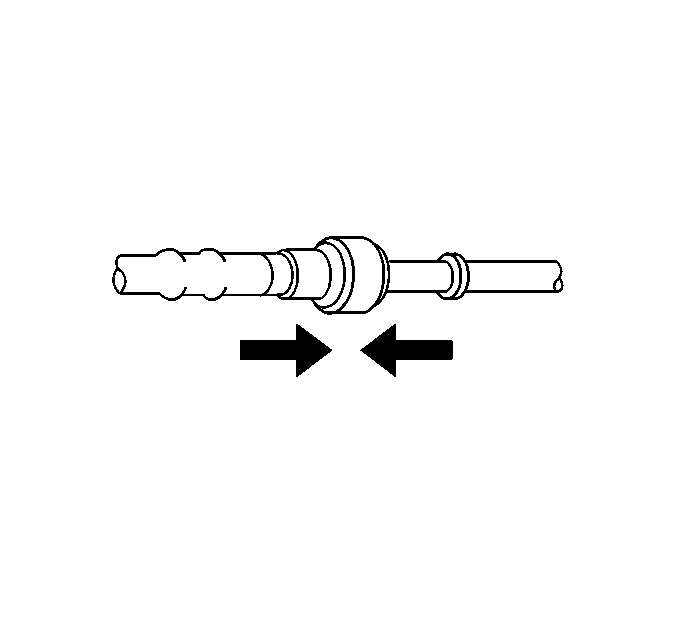
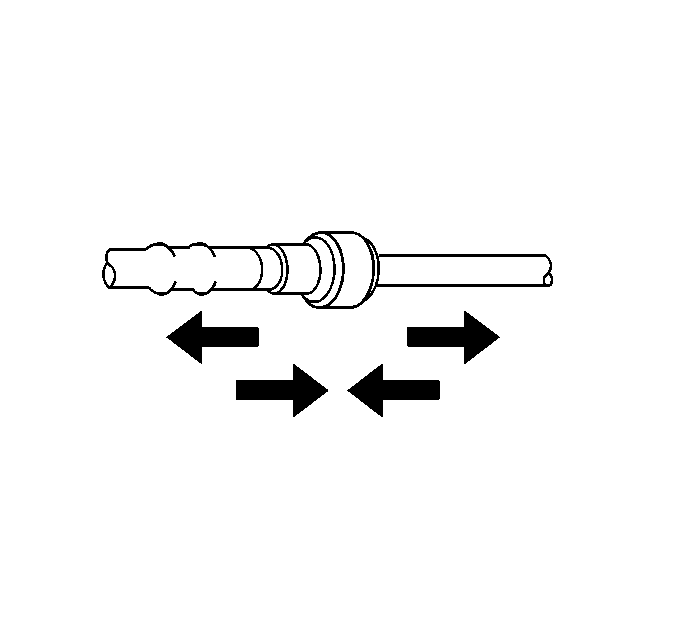
| 5.1. | Turn the ignition switch ON for 2 seconds. |
| 5.2. | Turn the ignition switch OFF for ten seconds. |
| 5.3. | Turn the ignition switch ON. |
| 5.4. | Check for fuel leaks. |
